Affiliate links on Android Authority may earn us a commission. Learn more.
2019 will be a great year for smartwatches and fitness trackers — here's why
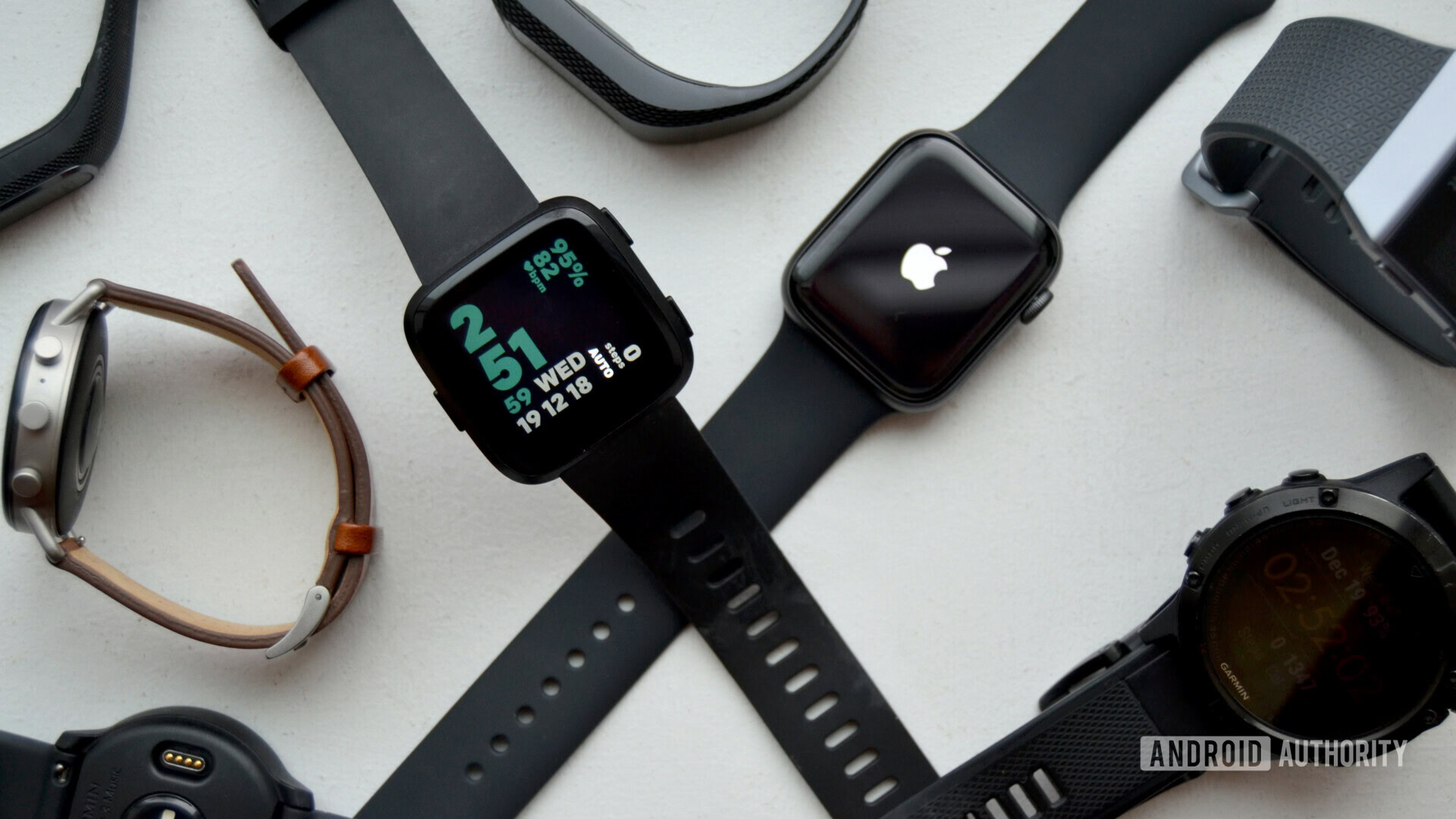
Smartwatches and fitness trackers have never been as cut-and-dry as smartphones because they’re not for everyone. Not everyone needs to track how many steps they take, and most of us certainly don’t need our wrists buzzing day in and day out.
Looking back at the past year, a lot has gone on in the world of wearables.
2018 showed us fitness trackers becoming much more like smartwatches, and smartwatches getting much better at tracking fitness. Apple is still ahead in the smartwatch landscape, and Wear OS is still suffering from the lack of a Google-made Pixel Watch. Read on to find out where we think the wearables market is headed in 2019.
Fitness trackers are getting really good, even with their limitations
Fitness trackers have seen the biggest improvements in 2018, at least compared to full-fledged smartwatches. Whether we’re talking smartwatch features or new sensors, fitness wearables are becoming ever more capable, which means the need for smartwatches is diminishing. Let me explain.
I’m not saying fitness trackers like the Fitbit Charge 3 or Garmin vivosport are better smartwatches than, well, traditional smartwatches, but they can get really close — provided you don’t need a ton of third-party apps or a big screen.
I might start recommending fitness trackers over smartwatches to some people.
If all you need in a wearable is access to smartphone notifications or alarms — aside from activity tracking, of course — any of the latest fitness trackers from 2018 will do just fine. I hate to keep going back to the Charge 3, but Fitbit did a really great job with its latest tracker. Not only can you reply to notifications from your wrist, you can also check the weather and buy things with Fitbit Pay. Fitbit even plans to bring a number of third-party apps to the Charge 3, so it’s not out of the realm of possibility that we might see support for services like Uber down the line. We should see the first third-party apps come to the Charge 3 in 2019.
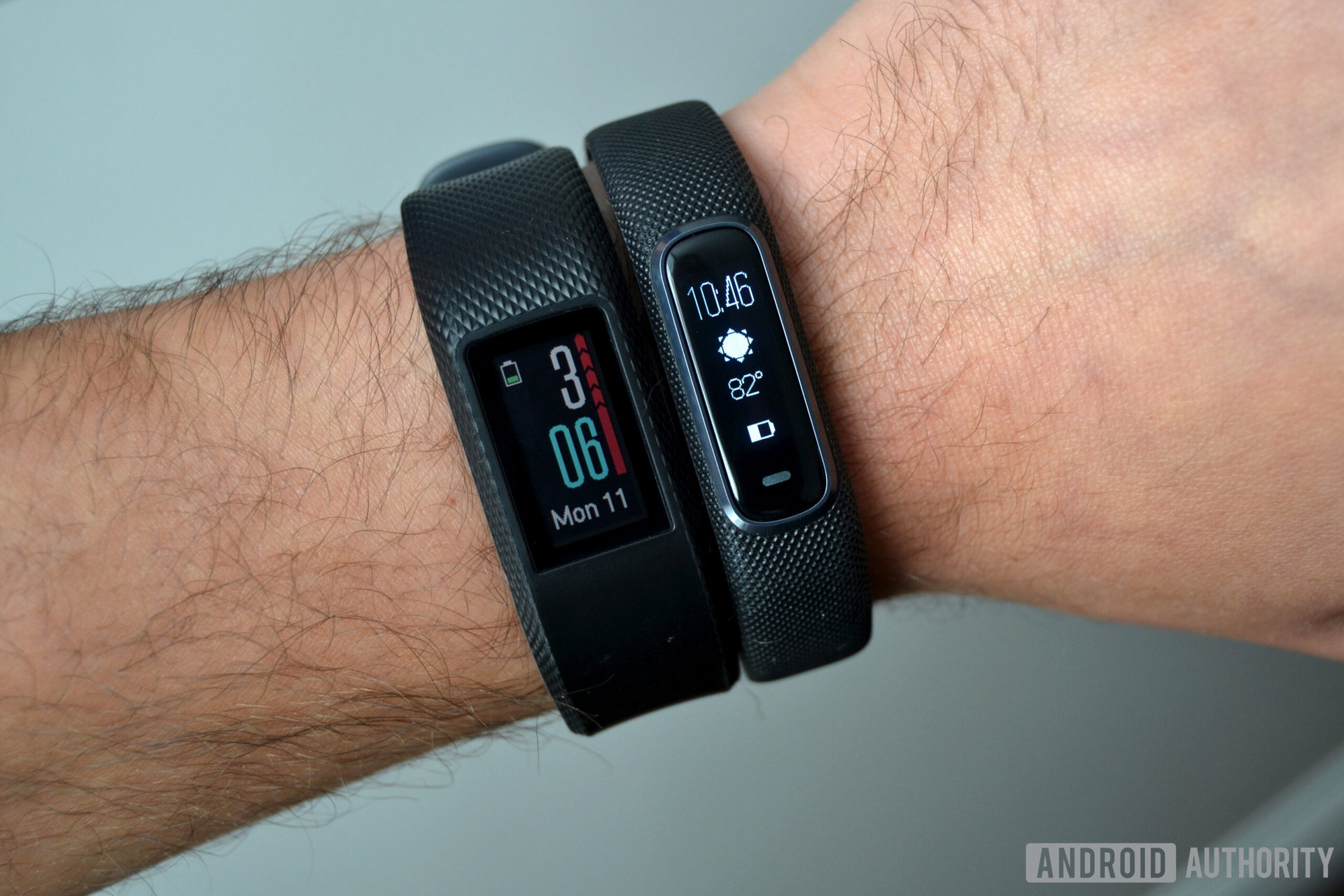
In 2018 some companies finally put the “we didn’t have room for those sensors” excuse to rest. Especially with the new Vivosmart 4, Garmin’s thin and light fitness tracker packs a surprising amount of sensors into a small form factor. We can even commend 2017’s Vivosport, which features a built-in GPS and still manages to remain smaller and thinner than the competition.
Of course, a big limitation traditional fitness bands are always going to run into is size. Part of the compromise when choosing a fitness tracker over a bigger device is you’ll have a more compact form factor. I’m not just talking about screen size — some people don’t need a big display on their wrist — but we could get to a point where Fitbit, Garmin, Samsung, Misfit and others will start making the “we didn’t have room for those sensors” excuse again.
The more and more companies cram into these devices, the less room there is for other things. If things like SpO2 sensors and connected GPS turn out to be fitness tracker staples, companies will have to make compromises. Perhaps one tracker will add the latest-and-greatest health sensors, but remove a feature that’s important to your lifestyle.
I don’t think this will happen in 2019, but it’s always a possibility.
Third-party apps really do matter
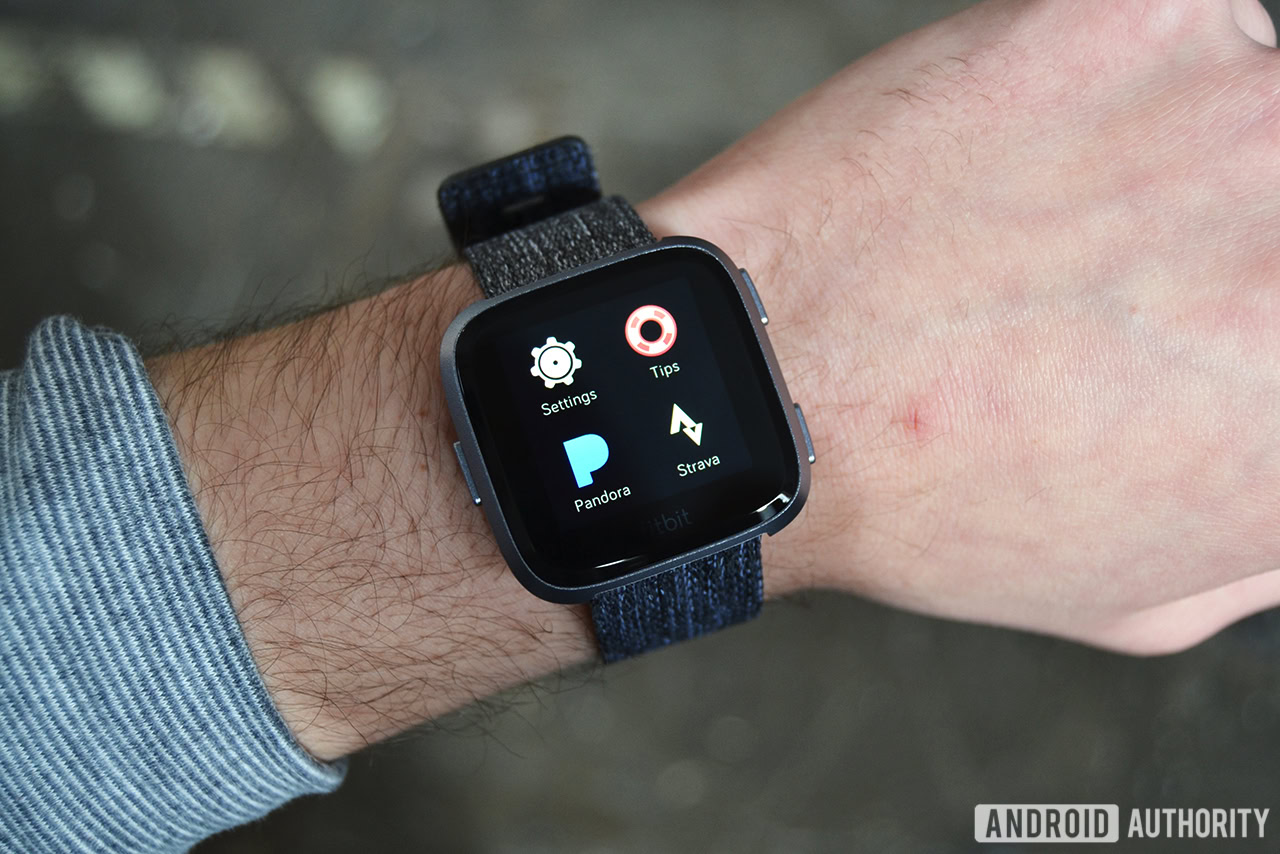
It's a completely different experience using a Wear OS watch or Apple Watch compared to something made by Fitbit or Samsung.
For as many improvements as we’ve seen this year, many of the newer smartwatch companies are still playing catch-up to Apple and Google with third-party app support. Everyone wants to give the Apple Watch and Wear OS watches a run for their money, but Fitbit and Samsung arguably have the most work to do. Fitbit just came to the smartwatch scene in 2017 with the Ionic, but Samsung has used its proprietary Tizen OS for years. Sure, popular apps like Spotify are finally coming to more platforms, but the state of third-party apps could certainly be better.
Third-party apps can make or break a smartwatch platform. The Apple Watch and Wear OS watches offer up completely different experiences than watches from lesser-known companies. They make the overall experience feel much more polished and whole.
I hope the situation improves in the new year, but I can’t say for sure. App developers don’t seem as focused on developing for the Fitbits and Samsungs of the world and remain focused on the two major players.
Wear OS could use some help from Google
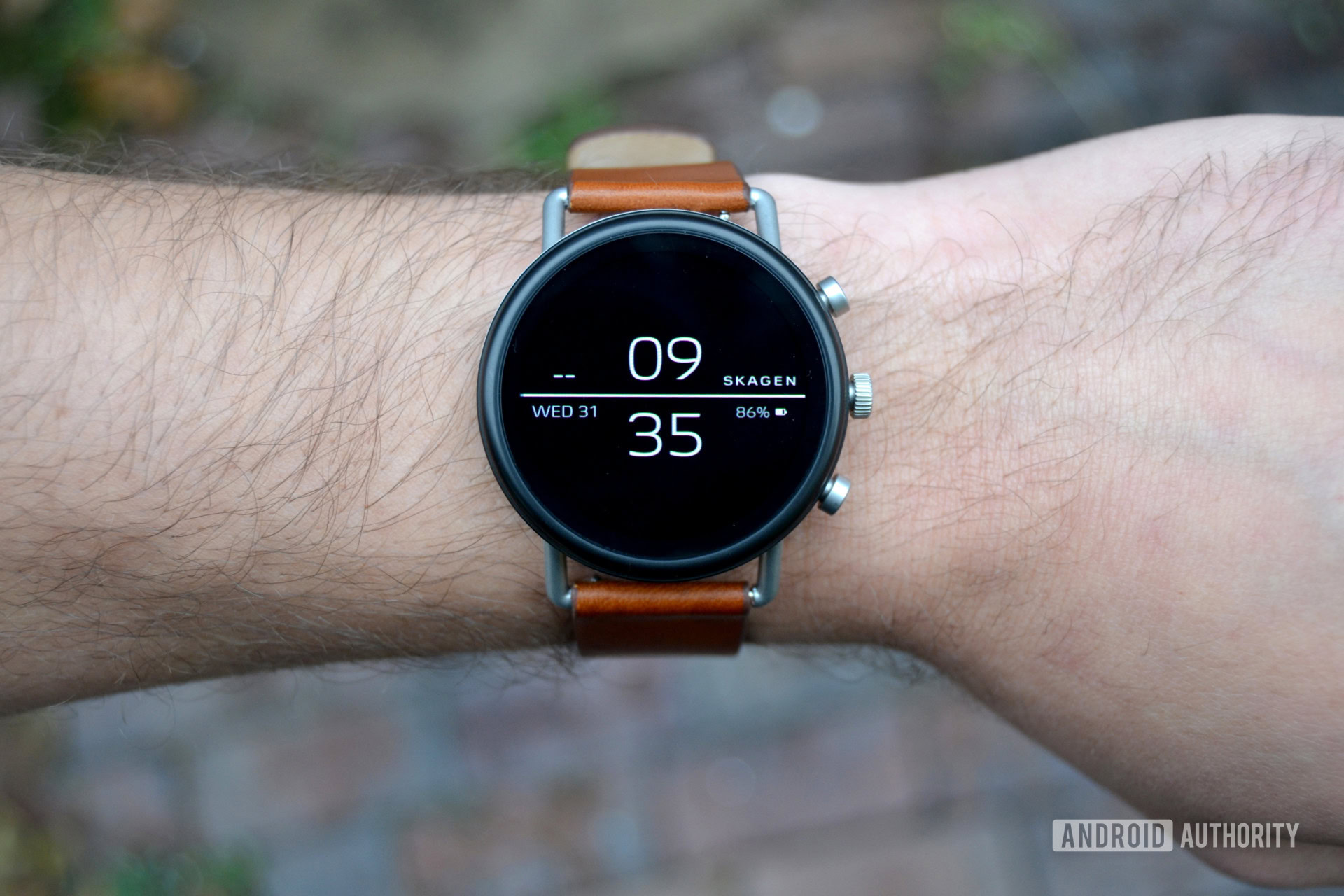
Wear OS watches are in a weird state right now. You might disagree with this, but I think it’s largely because Google has yet to make a Pixel Watch.
Back in 2016, Google showed confidence in its hardware team by retiring the age-old Nexus name and introducing the Pixel line — smartphones made by Google, designed for everyone (read: iPhone users). Using a Pixel phone continues to be different than using other phones. Users have the added comfort of using a phone made by the same company that makes Android. It’s nice to know these phones will continue to be supported for years, despite all their issues.
Google needs to do the same thing to Wear OS.
Not launching a first-party Wear OS watch makes me think Google isn’t as confident in Wear OS as Android. The last thing the company wants to do is release a watch plagued by the same issues as most other Wear OS devices, like poor battery life and sluggish performance. Until Google finds longterm, viable solutions for those issues, I really don’t think it will launch a watch.
Smartwatches are the only major product category missing from Google's Pixel lineup.
For years, Google has said it will continue to focus on making Wear OS the best operating system it can for third-party watchmakers. That’s understandable considering Google’s long-held “software first” mentality, but things are different now. Google’s Pixel line features smartphones, tablets, laptops, and more. The only thing it’s missing is a smartwatch.
Maybe that will change in 2019.
Apple continues to pull ahead
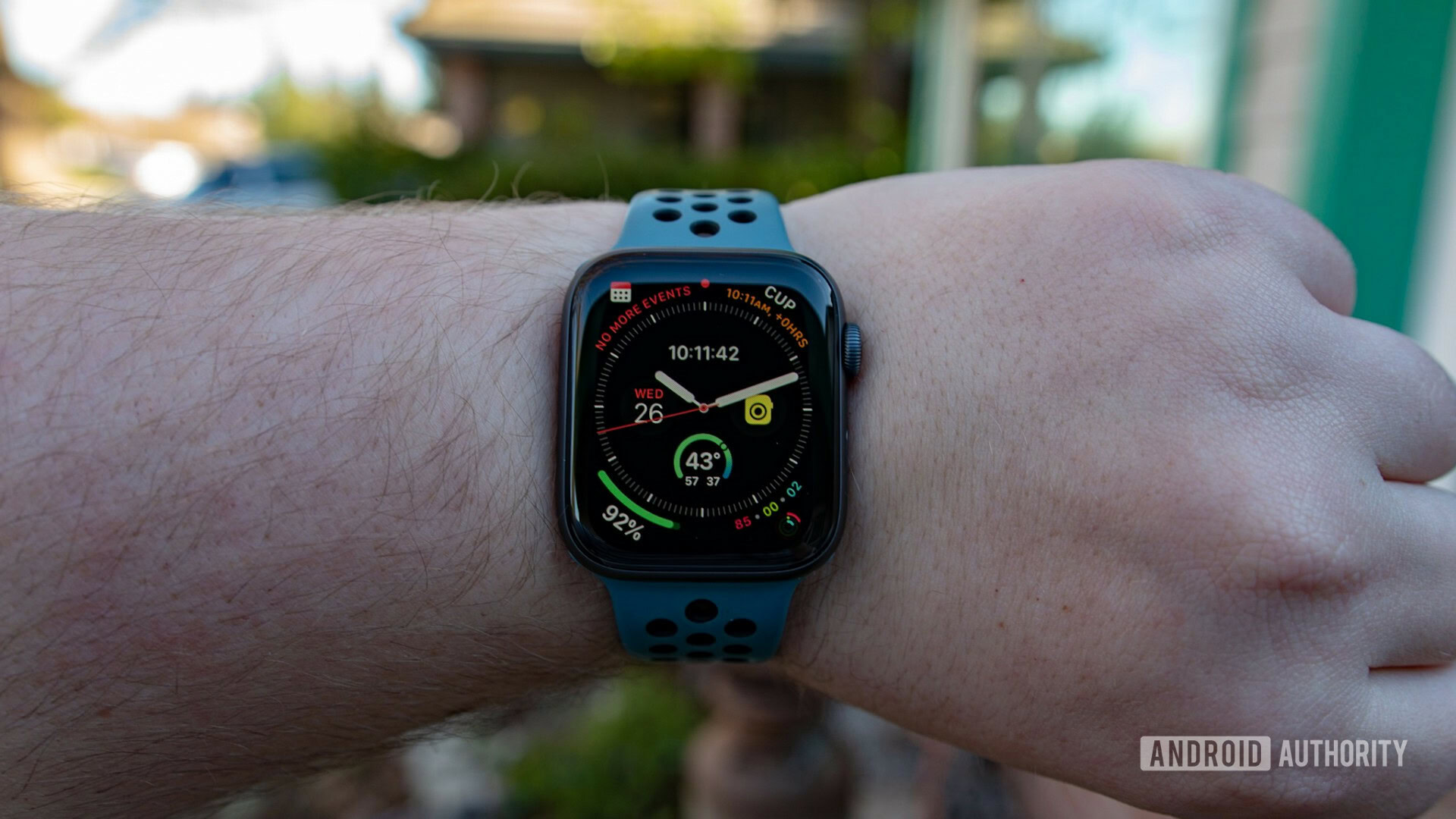
Frankly, Apple is in a league of its own with the Apple Watch, largely due to its business model. Apple has always been a product company, unlike Google which has traditionally been a services-first (not hardware) company. It got the hardware basics right from the start and continued to improve the recipe overtime.
The Apple Watch has always been a solid smartphone companion, as well as a good fitness and health tracker. This has allowed Apple to iterate over the years, slowly but surely launching slightly improved versions of its watches, similar to the launch cycles we see in the smartphone market.
Without Google making first-party hardware, the Apple Watch is going to continue to pull ahead.
With Google, there’s a disconnect. It can improve Wear OS all it wants, but watchmakers will always be behind in introducing hardware features to their watches. We’re still dealing with Wear OS watches launching without core features like heart rate sensors and NFC. It’s ridiculous. On the flip side, Apple’s gone so far as to introduce a built-in ECG into the Series 4 Apple Watch.
Wearables are a different beast than smartphones. The software and hardware are more intertwined, particularly in fitness devices. If a company — say Garmin or Fitbit — wants to introduce a pulse oximeter, it has to build support for that into the software. It’s not like Fossil (sorry for picking on you, Fossil) will take the initiative to introduce a new sensor like this to its Wear OS watches when there’s no support for the feature in the software. It just slows innovation down when the software and hardware aren’t made under the same roof.
In 2019 and for the foreseeable future, Apple will stay ahead and make even more feature-packed devices. As for Google? Read the previous section.
Now I want to hear from you — what are your wearable predictions for 2019? Sound off in the comments!